The Martin P5M Marlin was the final flying boat operated by the U.S. Navy, and marked the end of an era.
Gallery:
Features:
- Armament: 8x HVAR rockets, 8x AN-M64 500 lb bombs
- Livery: U.S. Navy Patrol Scheme, VP-45
- Fairly accurate performance
- A cockpit that should be VR compatible
Controls:
- AG 1: Open/close bomb bays
- Trim for trim
- VTOL for flaps
Notes:
- Thanks to ChiChiWerx for the roundels and MintLynx for the submarine in the picture
- The water takeoff does take quite a while because of the full-length hull! Recommend you pitch up at 100 knots and maintain nose-up attitude until takeoff at approximately 145 knots.
Background:
The Martin Company had produced the highly successful PBM Mariner flying boat during WW2. With over a thousand aircraft built, it performed maritime patrol well into the Korean War. But by that time, the design was fairly outdated and there was a desire for a more capable successor. Martin began a series of extensive modifications to the Mariner. These efforts would result in the P5M Marlin. Across its variants, the P5M flew for the U.S. Navy, U.S. Coast Guard, and French Navy.
The Marlin retained the same general configuration as its predecessor, being a twin-engine flying boat with a high-mounted gull wing and rigid floats extending from each wing. But it switched from split tails to a single vertical stabilizer and the fuselage was lengthened. The Marlin’s hull ran the full length of the fuselage, rather than being “stepped” as on the Mariner and earlier flying boats. It was also up-engined, and visibility was improved with a raised canopy. The Marlin carried weapons inside its engine nacelles for use against ships and submarines, complemented by underwing pylons. The P5M-2 was the final production variant, incorporating a variety of radars and antisubmarine warfare gear to better carry out its mission. This version also saw significant aerodynamic changes to the chine line at the nose and switched to a high-mounted tail.
Marlins flew maritime patrol missions off the coast of Vietnam as part of Operation Market Time, but were phased out shortly afterwards. It was not as successful as its predecessor, with fewer than 300 units produced and a shorter service life. But that’s less due to any shortcomings with the aircraft and more a result of the changing times. Larger, land-based aircraft offered superior performance and endurance. With access to infrastructure and runways around the world, it made sense to prioritize these attributes at the cost of water takeoffs and landings. The Marlin would prove to be the final flying boat in frontline service with the United States. One survives today.
Specifications
Spotlights
- This craft is curated
- goboygo1 1.6 years ago
- Trainzo 1.6 years ago
- Mal0ne 1.6 years ago
- SyntheticL 1.6 years ago
- TheGoldenEagle55 1.6 years ago
- ChihiroFujisaki 1.6 years ago
General Characteristics
- Created On Windows
- Wingspan 117.9ft (35.9m)
- Length 99.9ft (30.5m)
- Height 33.7ft (10.3m)
- Empty Weight 64,354lbs (29,190kg)
- Loaded Weight 76,761lbs (34,818kg)
Performance
- Horse Power/Weight Ratio 0.089
- Wing Loading 55.3lbs/ft2 (269.9kg/m2)
- Wing Area 1,388.4ft2 (129.0m2)
- Drag Points 16960
Parts
- Number of Parts 408
- Control Surfaces 5
- Performance Cost 1,744

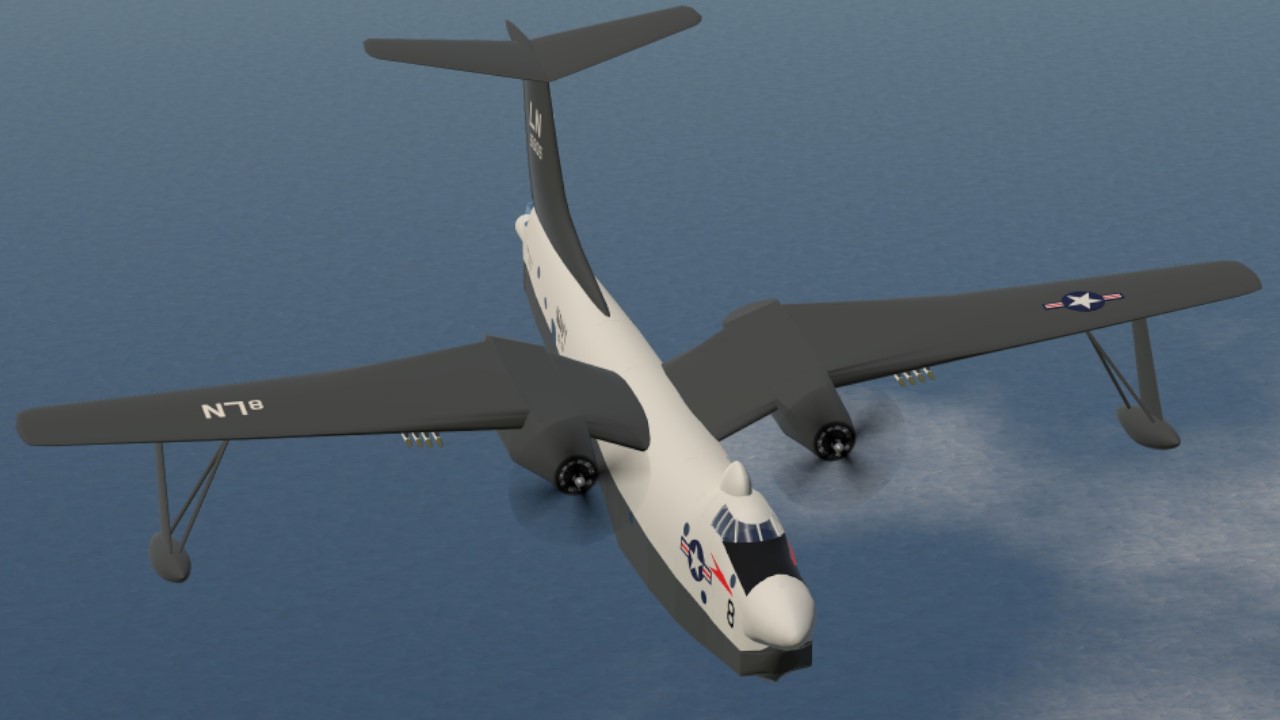
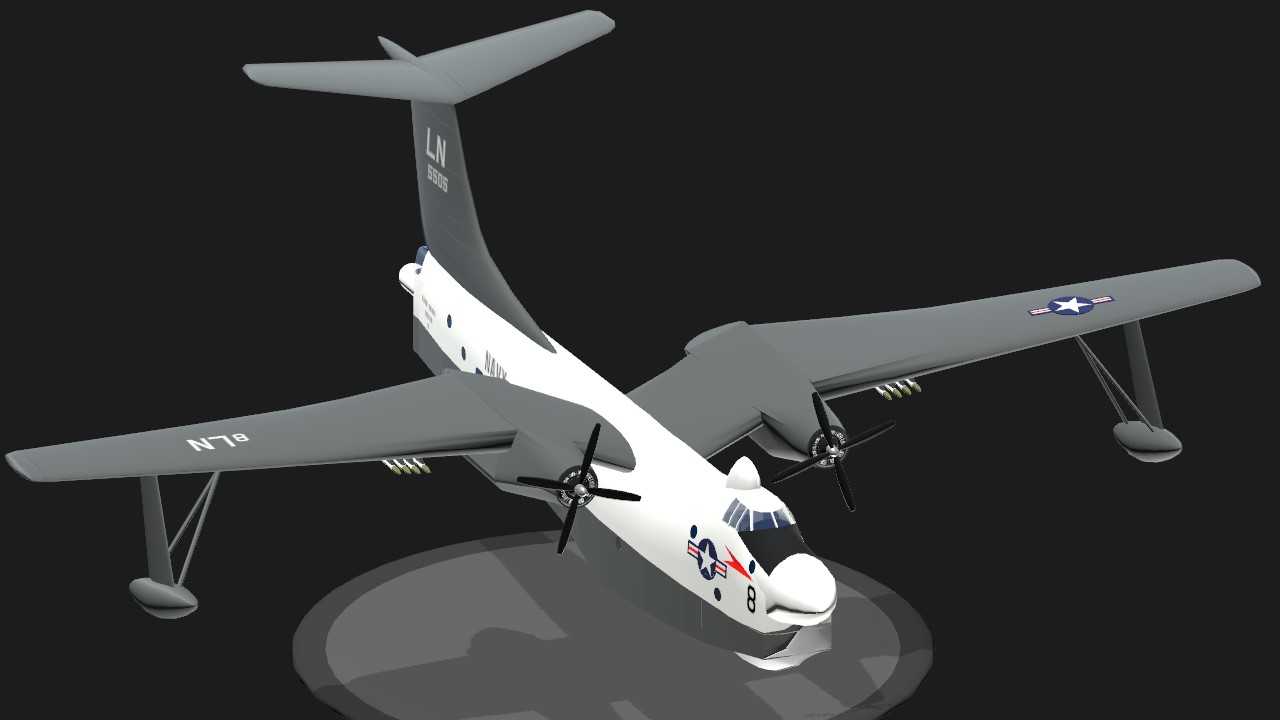
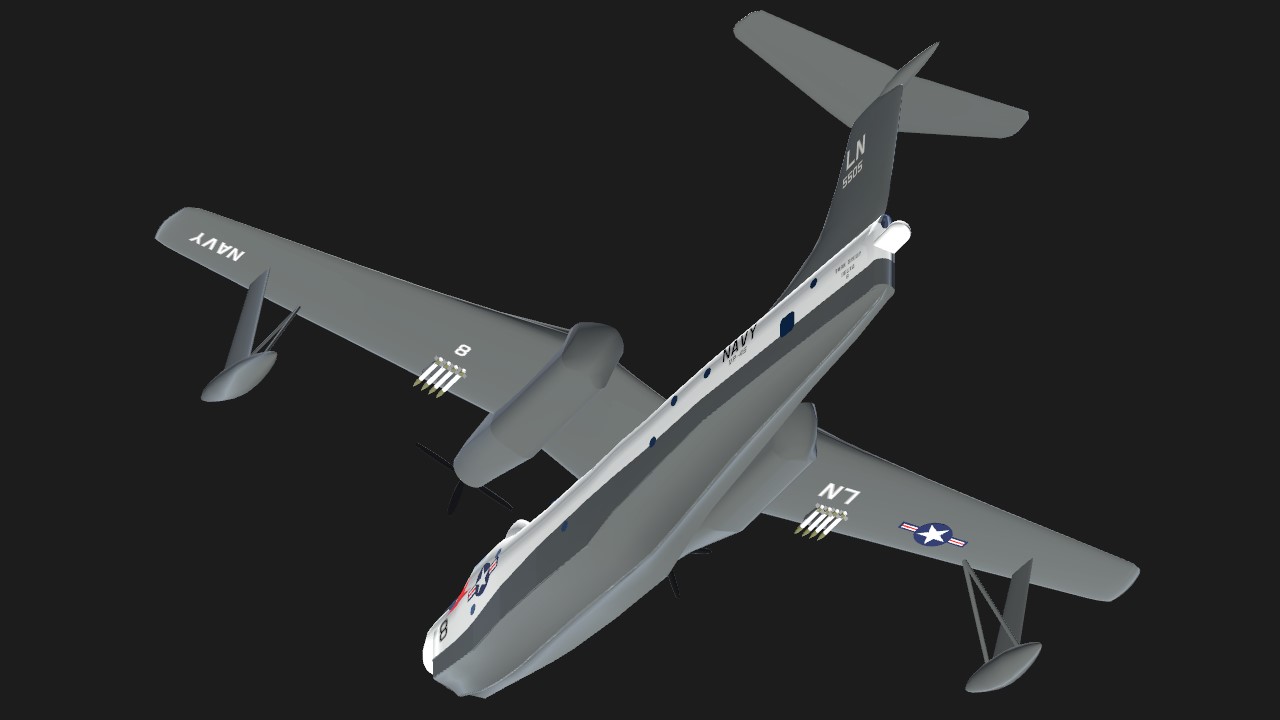




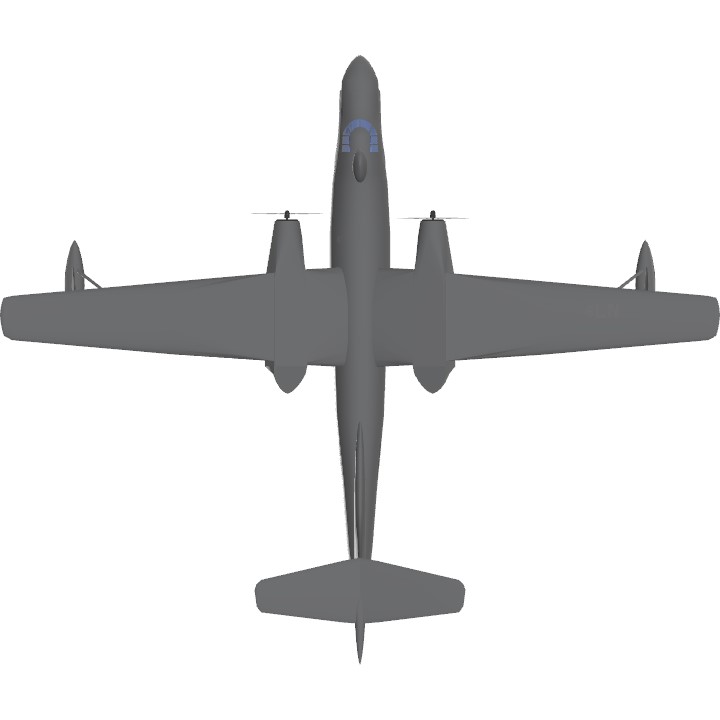
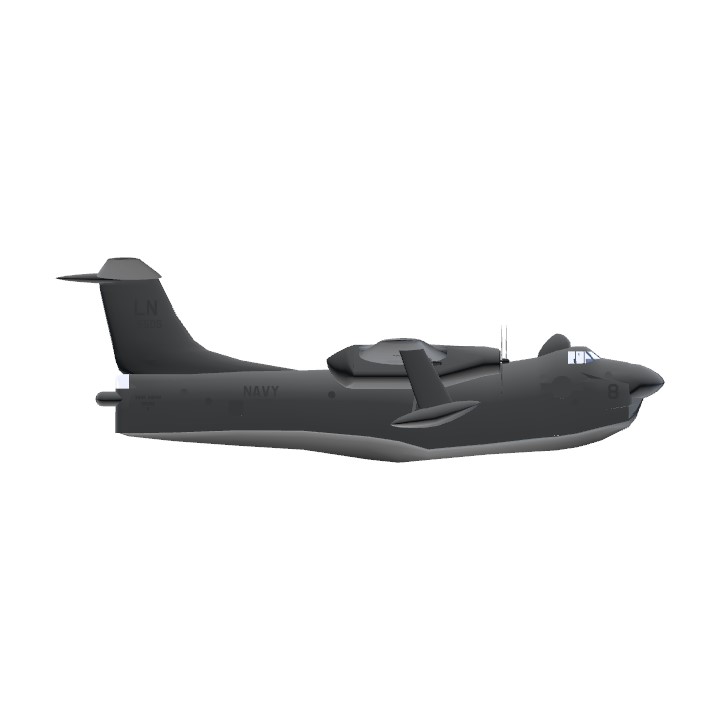
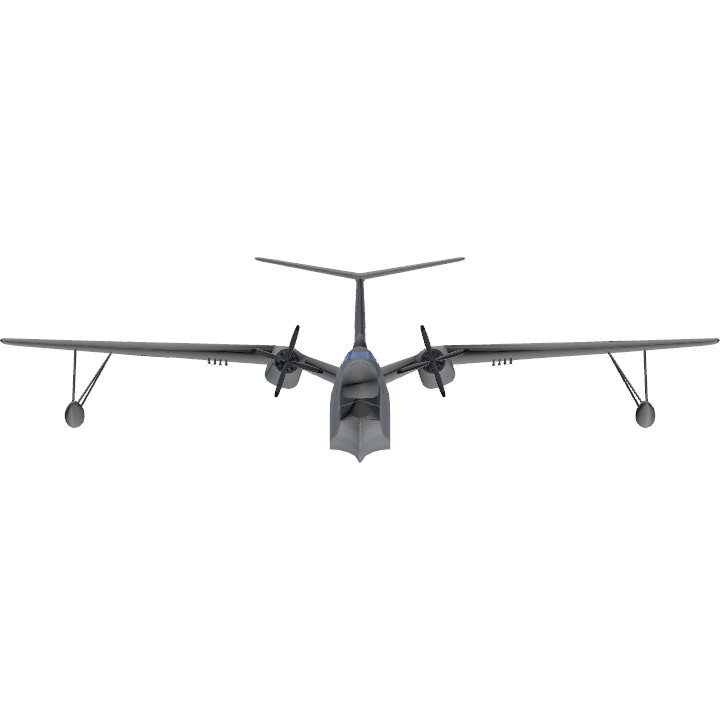
Can you make the F-86F Saber, P-80 Shooting Star with tanks, Lockheed T-33 Shooting Star, F-5E Tiger II and F-5F Tiger II. i love your planes 😄
Hi it’s me the guy that borrowed you B-45 code. How can I make it so it locks onto targets all around instead of just behind?
I think this is the United States answer for the Japanese ShinMaywa US-2
Y know, we are missing the PBM Mariner on this site, so i guess i should make one, too
@DogedogebreadWithAnAK47 yeah
Excellent work
@Alternation
hm
@DogedogebreadWithAnAK47 not a ripoff, but a successor
Outstanding model, congratulations!
HERE BEFOERE THE MOUSE
PBM Mariner ripoff, nice replica great job on the decals!
Wow!
this looks very good, i have no words on this
Very great replica .